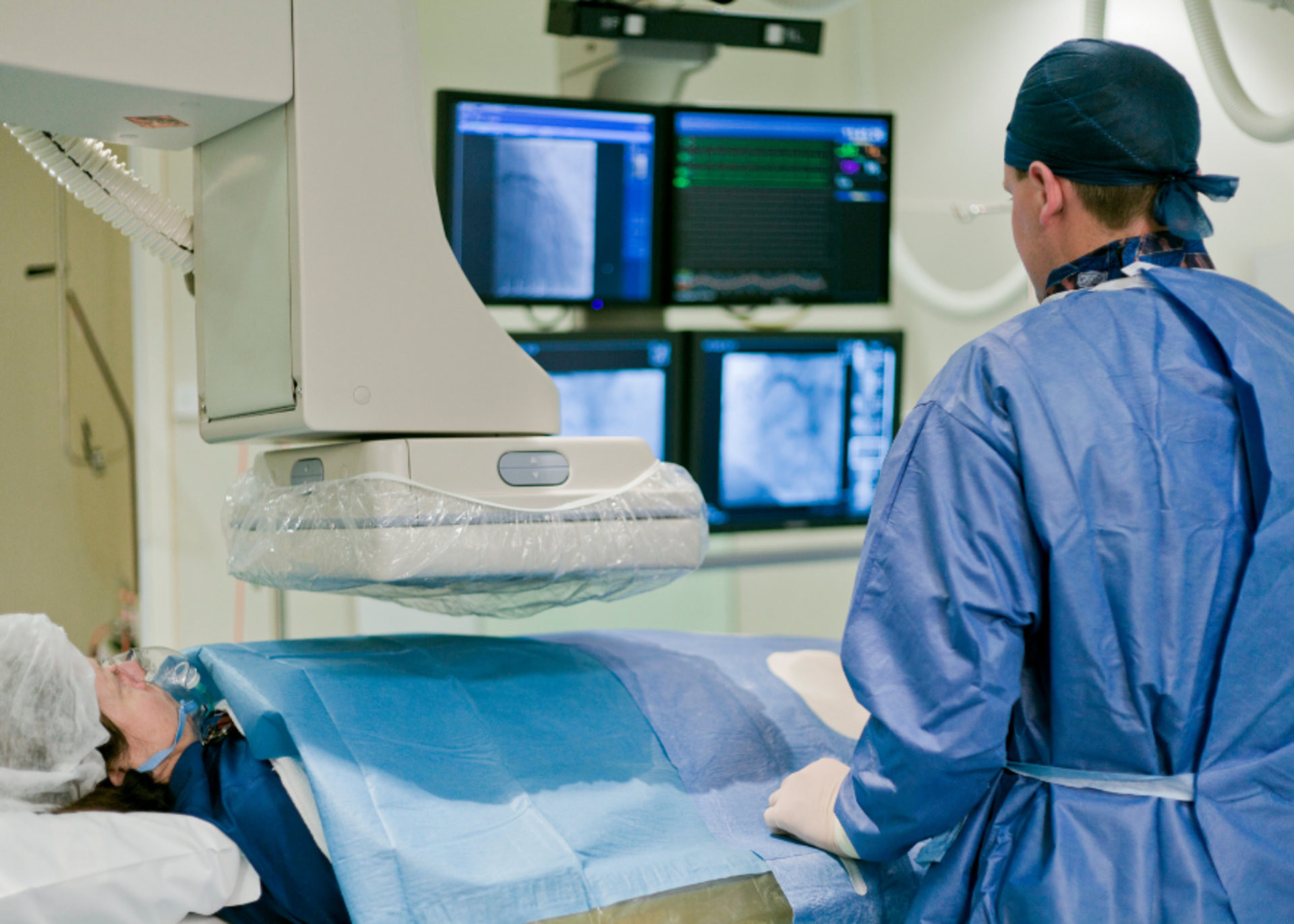Heart disease is one of the leading causes of illness and death in India. When someone has symptoms like chest pain, breathlessness, or abnormal stress test results, one of the most reliable procedures doctors use to assess the heart is cardiac catheterization.
As an experienced Interventional Cardiologist in Latur, Dr. Mehul Rathod frequently performs this procedure to help diagnose and treat various heart conditions. Let’s understand what cardiac catheterization is, when it is recommended, and what patients can expect.
What Is Cardiac Catheterization?
Cardiac catheterization is a minimally invasive procedure used to evaluate how well the heart is functioning. A thin, flexible tube called a catheter is inserted into a blood vessel—usually in the groin (femoral artery) or wrist (radial artery)—and guided to the heart using real-time X-ray imaging.
This test helps in visualizing the coronary arteries, heart chambers, and valves. It can measure pressures within the heart, assess blood flow, and guide treatments like angioplasty and stent placement if blockages are found.
Why Is Cardiac Catheterization Done?
This procedure is both diagnostic and therapeutic. It can be used to:
1. Diagnose Coronary Artery Disease (CAD)
If you have symptoms like chest pain (angina), fatigue, or breathlessness—especially during exertion—cardiac catheterization can reveal if your coronary arteries are narrowed or blocked.
2. Evaluate Heart Function
It helps assess how well your heart is pumping blood and whether the heart valves are working properly.
3. Plan or Perform Treatment
In case of a blockage, a balloon angioplasty or stent insertion can be done during the same procedure to restore normal blood flow.
4. Investigate Abnormal Tests
If you’ve had abnormal results from an ECG, stress test, or echocardiogram, catheterization provides more detailed information.
5. Check for Congenital or Structural Heart Defects
It is also used to assess structural abnormalities present from birth or due to disease.
Who Needs Cardiac Catheterization?
Dr. Mehul Rathod recommends cardiac catheterization if a patient:
- Has chest pain or discomfort suggestive of angina
- Shows signs of heart attack
- Has abnormal ECG or stress test results
- Is suspected of having heart valve disease
- Has heart failure with unclear cause
- Needs evaluation before cardiac surgery
How Is the Procedure Done?
Preparation: You may be asked to fast for a few hours before the test. Blood tests, ECG, or other imaging may be done before the procedure.
Local Anesthesia: The site of catheter insertion (wrist or groin) is numbed with local anesthesia.
Catheter Insertion: A sheath is placed into the blood vessel, and the catheter is threaded through it towards the heart under X-ray guidance.
Contrast Dye: A contrast dye is injected through the catheter to make the coronary arteries visible on X-ray (this is called coronary angiography).
Monitoring and Treatment:
- Heart function and pressures are monitored. If needed, angioplasty or stenting can be done on the spot.
- The procedure usually takes 30–60 minutes.
Is Cardiac Catheterization Safe?
Yes, when done by trained specialists like Dr. Mehul Rathod, cardiac catheterization is a safe and routine procedure. However, as with any medical procedure, there are minor risks such as bleeding, infection, or allergic reaction to the contrast dye. Serious complications are rare.
Post-Procedure Care
- You’ll be monitored for a few hours in a recovery room.
- Most patients can go home the same day or the next.
- Avoid strenuous activities for 1–2 days.
Follow your doctor’s advice on medication, diet, and follow-up appointments.
Cardiac catheterization is a valuable tool in modern cardiology. It not only helps in diagnosing heart conditions accurately but can also be used to treat life-threatening blockages during the same sitting.
If you are experiencing chest pain, breathlessness, or have been advised further heart testing, consult Dr. Mehul Rathod, a leading Consultant Interventional Cardiologist in Latur. With his expertise and patient-centered approach, you’ll receive accurate diagnosis and the best possible care for your heart health.
Read More:Coronary Artery Disease Treatment | Dr. Mehul Rathod
